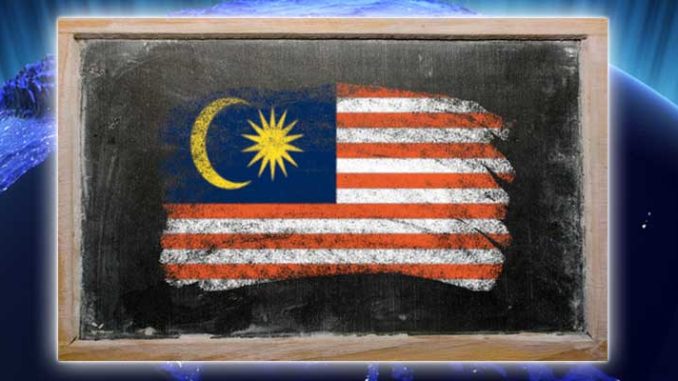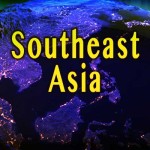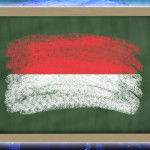
Thank you Mr. Chairman, Acharn Giles. Friends, I have always been studying the people on the sides rather than the leaders. I started studying the coolies in the tin mines, and then I started looking at the minority group of Sabahans called Kadazan Duzuns, and more recently I looked at Indian minority groups. So when I was invited for this panel, I had to think about how I was going to look at this topic. But when I went to the library to see what books might be available as a short-cut to the discussion, I discovered to my great disappointment that there were actually few books written about political leadership in Malaysia. Except when it comes to Dr. Mahathir, and then you have several volumes of serious studies.
But in a sense, this is a commentary on how politics has been studied in Malaysia. We’ve had many volumes about Malaysian society being divided along ethnic lines and so forth. That has dominated the study of Malaysian politics. And then another series of books talk about the institutions that are supposed to breach this deeply divided society. And so we have the role of political parties, the bureaucracy, the bureaucracy in rural areas, the bureaucracy in urban areas, constitutionalism, federalism, the district office, etc. So this was the entire spectrum of books about Malaysian politics, in a sense, until the time of Mahathir, who has been very controversial. But I do not want to start this discussion today by looking at Mahathir. I want to look at something easier to handle, and that is the recent elections.
The interesting thing about the last elections is that the ruling Barisan Nasional government won 64% of the popular vote. But then, with the funny system we have in Malaysia, which is based on a first-past-the-post simple majority, this 64% translated into 90% of the seats in parliament – which is quite incredible. This is the highest percentage they had ever captured.
In the previous elections, in 1999, the Barisan Nasional had performed very badly and it is useful, by way of contrast, to look at what happened at that time. In 1999, the Barisan Nasional did very, very well in Sabah and Sarawak; it won in all the mixed-ethnicity constituencies; it split votes with the opposition in the Chinese-majority constituencies (a small number); but it lost the Malay heartland votes. Mahathir lost the support of the Malays in the 1999 elections. In the 2004 election held just a few weeks ago, by contrast, Pak Lah – Abdullah Badawi, the new prime minister – very convincingly recaptured the Malay heartland votes. To add to this, he also performed very well in Sabah and Sarawak, and in the mixed areas, and continued as usual to split the vote in the Chinese areas.
So this accounts for the 64% that he won, in contrast to 1999 when Mahathir only captured some 55% of the popular vote. In capturing the popular Malay vote in Kelantan, Trengganu, Kedah, and Perlis, bordering Thailand, Abdullah seized the initiative from the Parti Islam, which lost the right to form the government in Trengganu, although it narrowly won enough seats to form the government in Kelantan.
A lot of people tried to understand how this came about, and pundits coined the term “Pak Lah factor.” “Pak” is an honorific that one uses for an elder, and “Lah” in this case is “Abdullah.” So this moniker is used to refer with affection to this man. And it was said to be the “Pak Lah factor” that turned the tide in favor of the Barisan Nasional this time.
When he first came to power less than five months ago, Pak Lah emphasized that he was trying to focus on what he called the soft way of development as opposed to Mahathir’s hard way. He wanted to introduce a first class mentality among Malaysians, as opposed to the first class infrastructure that Mahathir had introduced. And so he promised continuity rather than disruptions and changes.
In fact, Abdullah Badawi introduced a lot of very subtle but very important changes. Put together, these changes seem to be a critique, as well as a negation, of many aspects of what Dr. Mahathir stood for. Let me elaborate. The first theme that Abdullah Badawi picked was improving governance – this is his own term. In this regard, he began to withdraw some of the awards for mega projects that Dr. Mahathir had given to his favorite cronies. And – this is very critical – this was very well reported.
Secondly, he launched a war against corruption. Mahathir, of course, had also argued that he was against corruption. But that was all a lot of thunder and lightning, and very, very little action. In this case, the newspapers suddenly began to conduct exposes on corruption, clearly with the support of the higher-ups. (In Malaysia, the newspapers are not known for investigative journalism at all.) So we began to hear about corruption occurring in the district office, corruption occurring at the ministry level, and these culminated in the arrest of two very prominent individuals. One was Eric Chia, the CEO of Purwaja Steel, a company owned by the Malaysian government which had lost billions of dollars. He was charged with involvement in embezzlement, but only to the tune of 76 million ringgit. They also charged an acting minister [Lands and Cooperative Development Minister Kasitah Gaddam] with being involved in corrupt practices, and this man was subsequently disallowed from contesting the elections.
My point is, it looked as though Pak Lah was very serious about this war against corruption. In fact, his minister of legal affairs announced that they were still looking into eighteen other very important cases, which apparently involve some of the serving ministers. And Pak Lah ordered his attorney general to speed up the process. Now, none of these have gone to court yet; nobody has been convicted. The system of awarding tenders for major projects in Malaysia has not changed. Money politics continues to be evident at the local level, at the mid-level, in the awarding of contracts to people who are politically well connected. So there is a lot of anticipation as to whether this war against corruption will really take place. But it felt good. There was a break. And this accounts for the romance with this new prime minister.
There was another important initiative taken by Abdullah Badawi, which was to set up a special commission of inquiry into the performance of the police force. Although he said this was in keeping with reforming the police so it could conduct its task more efficiently in the 21st century, in fact it was very clearly a response to increasing public indignation about the high number of raids being conducted, police abuses, and violent crimes. We do not know how this will turn out. Some people he has appointed to the special commission are former judges, including the Lord President [Salleh Abas] who was sacked by Mahathir. This is very significant. On the other hand, the deputy of this commission is the former inspector-general of police [Mohammad Hanif Omar], who might steer the body to be more sympathetic to the plight of the police. But there are other people who might make sure that this commission does its job and conducts itself properly.
The fourth aspect of the Pak Lah factor was seen on his very first day in office. In a televised address to the nation, he talked about the need to upgrade the civil service. But this was also a criticism of top politicians who had been very irresponsible. The game he was playing was ambiguous: on the one hand, he was criticizing the civil service; on the other hand, he was blaming the politicians for having politicized the civil service.
At any rate, over the following months, he began to develop very favorable relationships with the bureaucracy. This was a very important departure from Mahathir, who developed a special relationship with the private sector under the auspices of Malaysia Inc. Under Mahathir, the civil service was sidelined. Top students who graduated from the university were increasingly encouraged to join the bumiputera commercial and industrial community – this is the term we use in Malaysia for big business – rather than join the civil service, which was the tradition of the past. But Pak Lah, who himself emerged from the ranks of the civil service, now began to develop a closer relationship with the civil service. He introduced higher salaries for teachers, a better pay-scheme for the police force, and also promised retirement benefits for the civil service. And this he did within a short span of time.
Lastly, the Pak Lah factor should be considered under the rubric of what I might call the “work-with-me” style of politics. This “work-with-me” style was a politics that was more consultative, a politics that was warmer – mesra – and more halus – refined and dignified. It can be contrasted with Mahathir’s style, which was very temperamental, which saw him scolding the students and the bureaucrats to no end. Every day Mahathir was scolding these people – they were not putting their shoulders to the wheel enough, they were not contributing to the development of Malaysia. It was a different style when Pak Lah came into office.
This “work with me style of politics” was seen in various ways. Every year during Hariraya al Fitri, when everybody rushes out of Kuala Lumpur, 300 to 500 people die in traffic accidents as they rush home for the festivities. And this time it happened again, but significantly Pak Lah decided that we need to think seriously about how to resolve this problem. And this was his Hariraya message – “come, after this, we will set up a public forum.” He invited the police, the NGOs, and the parents to come and join this public forum. And this was not simply a PR exercise, because there have been several meetings of these groups and hopefully they will lead to something.
And then on Christmas day and Chinese New Year, he sent out personalized greeting cards to all the major leaders of these communities. This was something different. This was not Dr. Mahathir’s style; this was a new mesra style. I personally liked how, when he addressed the country on New Year’s Eve, he had his wife alongside him. After he had spoken – very short, just nice – he turned to his wife and asked her: “won’t you say a few words?” and the wife actually addressed the country. And this was also very different – another symbolic break from the past.
Now I am not saying that this is how he won the last elections – this Pak Lah factor or asking his wife to address the nation. But I am saying that it was of considerable importance. During the campaign period, having introduced these kinds of changes, in effect, he refused to concede the moral high ground to the opposition on issues like fighting corruption, a cleaner government, a more responsible government, a more concerned government. He seized these initiatives back from the opposition.
Equally important was that he refused to concede religious authority to the Islamic Party. During the campaign, he suddenly threw out what he called Islam Hadhari. We were a little bit confused about what this Islam Hadhari meant. He explained it as an Islam which would return to the books, but would interpret the Islamic values contained in the teachings to address today’s problems. He calls this Islam Hadhari, and basically this was returning to the concept of ijthihad, or interpretation in the modern context.
But it was not just the Pak Lah factor that resulted in success in the elections. I want to argue that Abdullah was, and must be, thankful to Dr. Mahathir for past initiatives which subsequently allowed Pak Lah to reap the benefits of that great victory. I am talking about what we call in Malaysia the “three Ms.” The first M is money – the ruling political parties are super-rich. The second M is the political parties’ monopoly of the media – the political parties actually own or directly control all the major newspapers in the country. And the third M is the use and abuse of the government machinery for the elections. These factors persist and we cannot deny that they contributed to Pak Lah’s success in this election. (I should also mention that this was the shortest election campaign period ever, lasting simply seven days.)
Dr. Mahathir made other very important changes that facilitated Pak Lah’s victory. I refer to the amendment of electoral laws that took place in 2002. These amendments, among other things, hiked up the deposit required before a person can contest an election. This created a financial burden for the opposition parties, but was a drop in the bucket for the very wealthy political parties which are financed by big tycoons.
And in 2003 Dr. Mahathir conducted a redelineation exercise of the constituency boundaries. He added more seats in parliament and redrew the boundaries of existing seats where the opposition PAS [People’s Action Party] had done very well in the past. A colleague is now using the GIS (Geographic Information System) to try to map out how the constituencies in Malaysia no longer follow natural boundaries or district boundaries, but cross this way and that. It was gerrymandering all the way.
So it was not simply the Pak Lah factor which facilitated victory in the elections, but the structural factors and continuity with the Mahathir period – the three Ms, amendments to the election laws, and the redelineation of the boundaries.The last point is that the most charismatic leaders of the reformasi movement of 1998-1999 were incarcerated for the last two years. And because the leading lights of the movement were in jail, problems began to crop up within the opposition party, in-fighting and so forth. Some of the people who were subsequently released were then disallowed to contest in the last elections. Thank you.
Giles Ji Ungpakorn: Thank you very much. Our final speaker for this part of the session is Vedi Hadiz, who teaches at the National University of Singapore. Vedi is very well known for his work on Indonesian labor, but he is expanding his research into other areas of Indonesian politics.
 Pasuk Pongphaichit on Thailand
Pasuk Pongphaichit on Thailand
 Francis Loh Kok Wah on Malaysia
Francis Loh Kok Wah on Malaysia
 Paul Hutchcroft on The Philippines
Paul Hutchcroft on The Philippines
 Benedict Anderson on Southeast Asia
Benedict Anderson on Southeast Asia
Kyoto Review of Southeast Asia. Issue 6 (March 2005). Elections and Statesmen


